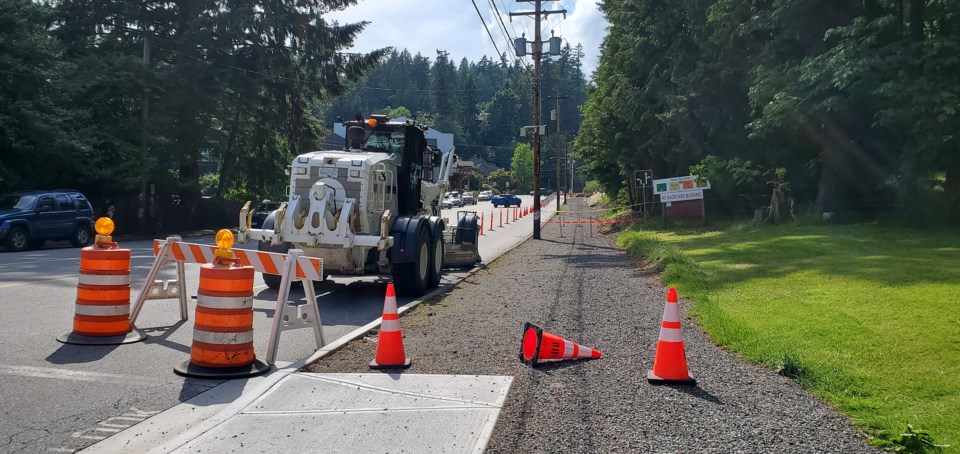An updated look at Bowen’s five-year financial plan paints a stark picture of what property taxes will look like in the years ahead.
Preliminary numbers given at the start of the draft process last month had this year’s rise at 13.3 per cent, with jumps from 2024-27 of 5.8, 3.4, 6.8, and 3.5 per cents. But during a presentation to council last week, chief financial officer Kristen Watson explained those numbers are no longer viable to address some of the community’s most pressing problems on the infrastructure front.
“The staff recommendation included in the report is based on the recognition that long-term pressure is the result of the cost of infrastructure, renewal and replacement, and the cost of additional debt that has been taken on to build capital projects,” says Watson.
The increase for this year is minimal (relative to the starting point), the new total rising by one to 14.3 per cent. This will equate to around $28 based on the average island home value of approximately $1.5 million. Total property tax for the year will be nearly $400 based on the same metric.
The 2023 increase will go specifically toward the area of asset management, which council has identified as a priority for the upcoming term. Earlier in the evening director of engineering Patrick Graham explained his department will need to hire a new staff member on a temporary two-year term to take the load off permanent public works staff so they can focus on this project, and will also need $20,000 for consulting costs.
Asset management includes tasks such as culvert assessments, water main replacements, bylaw and policy development, and much more.
Attention to boosting capital reserves driving property tax increases
It’s in the next four years where the most dramatic change would come however. Instead of the previous estimates which ranged from 3.4 to 6.8 per cent, proposed property tax raises for each of those years is now 9.5 per cent, with the goal of building up the municipality’s contribution to its reserves. Watson says this is necessary to tackle the long-term infrastructure deficit the island is facing.
By the end of 2027, Watson estimates the property tax raises will result in an additional $4,179,132 available in capital reserves ($2,962,724 under the original plan, $7,141,856 under the new plan).
“Nobody likes paying taxes and nobody really likes seeing their taxes go up… But given the frankly dire financial situation that faces us over the long term if we don’t do something, I think the approach we’re taking here – while it’s painful to everybody – is appropriate. It’s not easy for anyone but I’m pleased that we seem like we’re getting a grip on things,” said Coun. John Saunders.
The rest of council agreed, unanimously sending Watson’s proposal to official readings next week. “In my conversations in the community there’s not a lot of surprise so far that we need to spend on infrastructure, and that those costs are going to be expensive,” said Mayor Andrew Leonard.
“This is a five-year financial plan that is going to increase taxes, and we might not see the end of it… because there’s a lot of unknowns that we just aren’t certain of, particularly as the asset management plan plays out and we figure out more clearly what the costs are... there appears to be no way out from the fact that it’s time to invest and it’s time to get our asset house in order so that we’re ensuring the resilience and sustainability of our community going forward. I’m in support of this plan, even though I know that it’s a hit for the next five years,” added Leonard.
Council also unanimously approved considering an increase in the property tax distribution ratio for properties classified as Utility Class 2, which include electrical and telecoms transmitters. The previous ratio of these properties compared to residential was 4.16:1, and will now increase to 20:1. Watson says this should generate around $60,000 annually, which will provide about one per cent of relief to residential taxpayers.
The draft budget will be voted on during council’s April 24 meeting. The submission deadline for municipal budgets is May 15.



